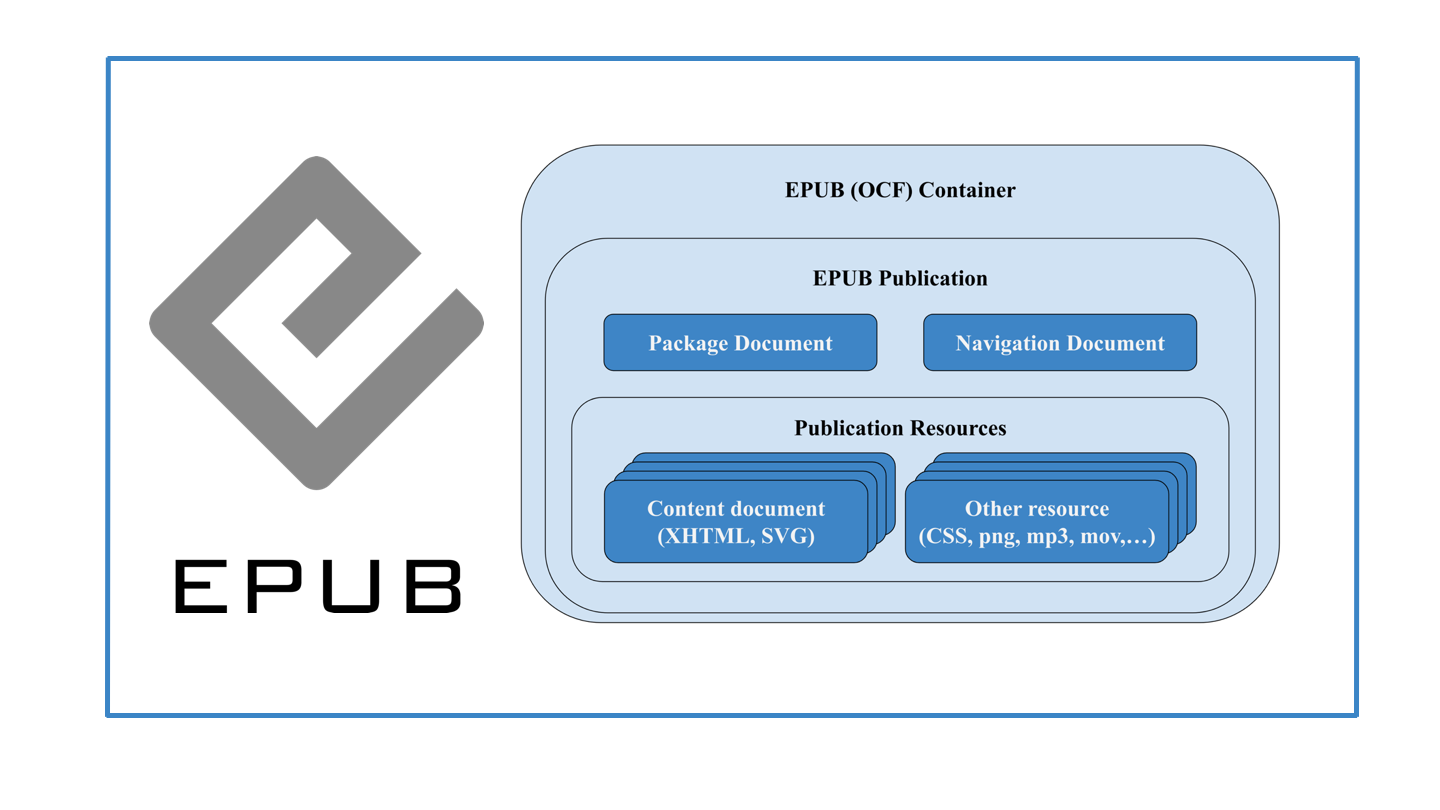EPUB 3.3 becomes a W3C Recommendation
https://www.w3.org/ — 25 May 2023 — W3C has just published the newest version of EPUB, EPUB 3.3, as a W3C Recommendation (an international Web Standard) as part of the Digital Publishing activity (established with the merger of IDPF and W3C in 2017).
EPUB defines a distribution and interchange format for digital publications and documents. The EPUB format provides a means of representing, packaging, and encoding structured and semantically enhanced web content — including HTML, CSS, SVG, and other resources — for distribution in a single-file container.
EPUB 3.3 is backward compatible with the previous version, EPUB 3.2, insofar as any EPUB 3.2 document is also valid EPUB 3.3. In other words, moving from EPUB 3.2 to EPUB 3.3 does not require any changes to current publication workflows.
The W3C process of standardization entails a thorough review of the specifications by Member experts, including checking the specification’s impact on implementations for internationalization, security, privacy, accessibility, and conformity to other Web standards. These reviews led to a number of small but important technical changes such as additional features to address bidirectional text, and more precise specification of security related details for scripts. The standard also includes detailed guidelines for implementers on the possible privacy and security problems.
The Working Group has also created a comprehensive test suite that systematically tests all normative features of the specification. This was done in strong cooperation with the developers of EPUBCheck. As a result, the latest version of epubcheck (version 5.0.1 has just been released) is fully compatible with EPUB 3.3; publishers may use it immediately.
The EPUB 3.3 documents have also undergone significant improvement with editorial changes and reorganizations. The content specification, which is what publishers, creators, or authors are really interested in, is now separate from the reading system specification that is of primary interest for implementers only. Editorial changes made the documents more readable. Finally, features that had little adoption (such as multiple rendition) have been removed from the standard text and have been published separately.
Accessibility of EPUB publications was an essential part of the group’s activity. As a result, the EPUB Accessibility specification has been updated and, for the first time in the history of EPUB, is now an integral part of the EPUB Standard. Furthermore, the EPUB Accessibility specification is compatible with the European Accessibility Act whose influence will be significant on Digital Publishing in the years to come.
W3C is committed to maintain the EPUB specification beyond this milestone. A planned dedicated Maintenance Working Group will consider issues such as a possible submission of EPUB 3.3 to ISO to update the current ISO version that is based on EPUB 3.0.1, or to consider features that were postponed (e.g., standardization of industry practices to use EPUB as a standard format for webtoons). No major technical changes are envisioned at this time, though.
Finally, please note that this edition of EPUB is dedicated to Garth Conboy, who was one of the original designers of EPUB, and an initiator of the W3C Working Group which produced these new specifications. He is, and will remain, greatly missed.
About the World Wide Web Consortium
The mission of the World Wide Web Consortium (W3C) is to lead the Web to its full potential by creating technical standards and guidelines to ensure that the Web remains open, accessible, and interoperable for everyone around the globe. W3C well-known standards HTML and CSS are the foundational technologies upon which websites are built. W3C works on ensuring that all foundational Web technologies meet the needs of civil society, in areas such as accessibility, internationalization, security, and privacy. W3C also provides the standards that undergird the infrastructure for modern businesses leveraging the Web, in areas such as entertainment, communications, digital publishing, and financial services. That work is created in the open, provided for free and under the groundbreaking W3C Patent Policy.
W3C's vision for "One Web" brings together thousands of dedicated technologists representing more than 400 Member organizations and dozens of industry sectors. W3C is a public-interest non-profit organization incorporated in the United States of America, led by a Board of Directors and employing a global staff across the globe. For more information see https://www.w3.org/.
End Press Release
Media Contact
Amy van der Hiel, W3C Media Relations Coordinator <w3t-pr@w3.org>
+1.617.253.5628 (US, Eastern Time)
